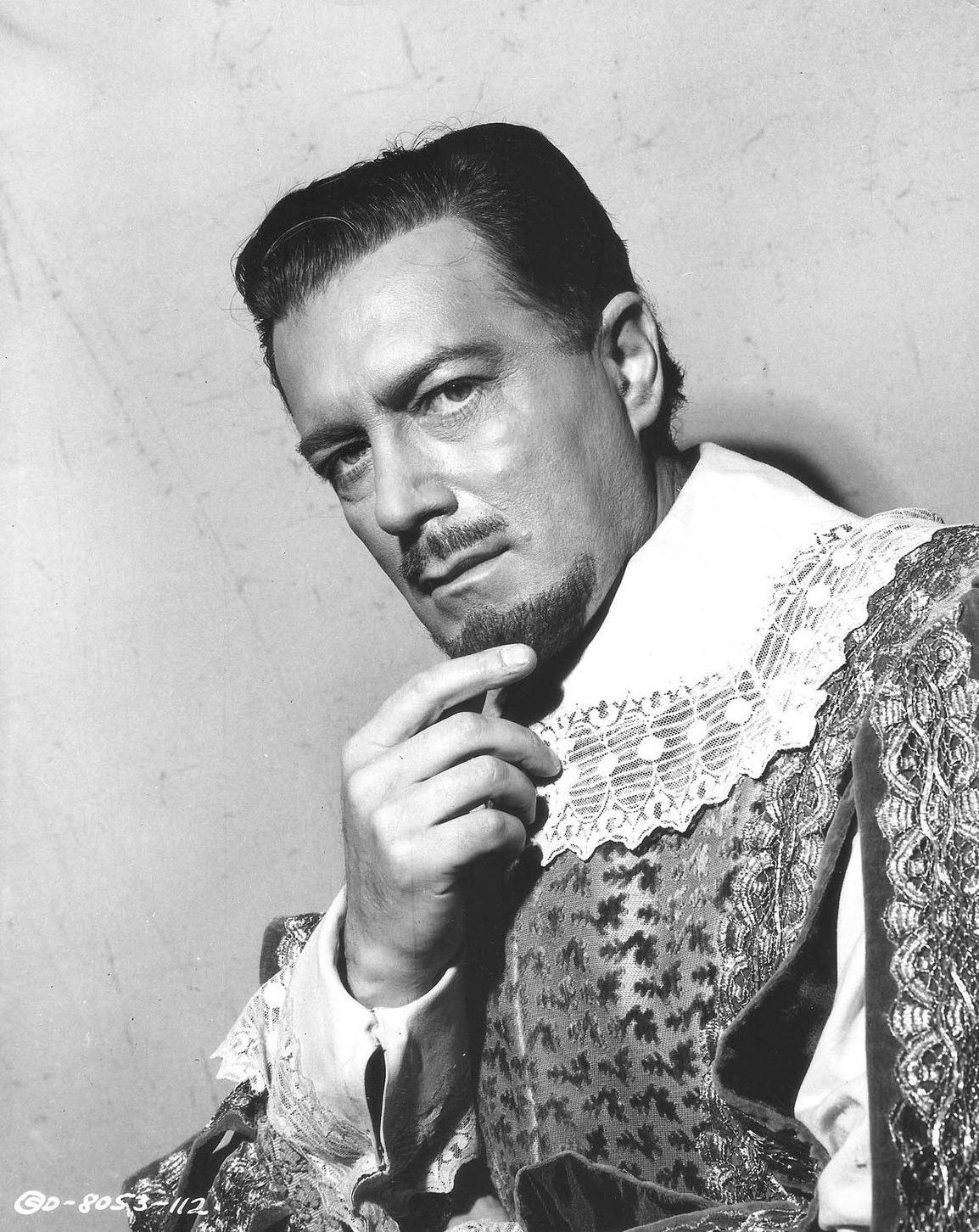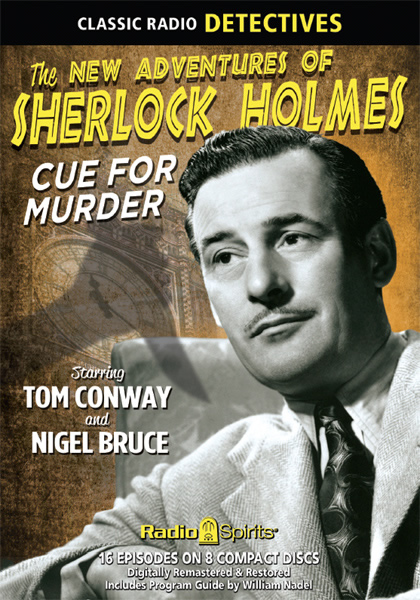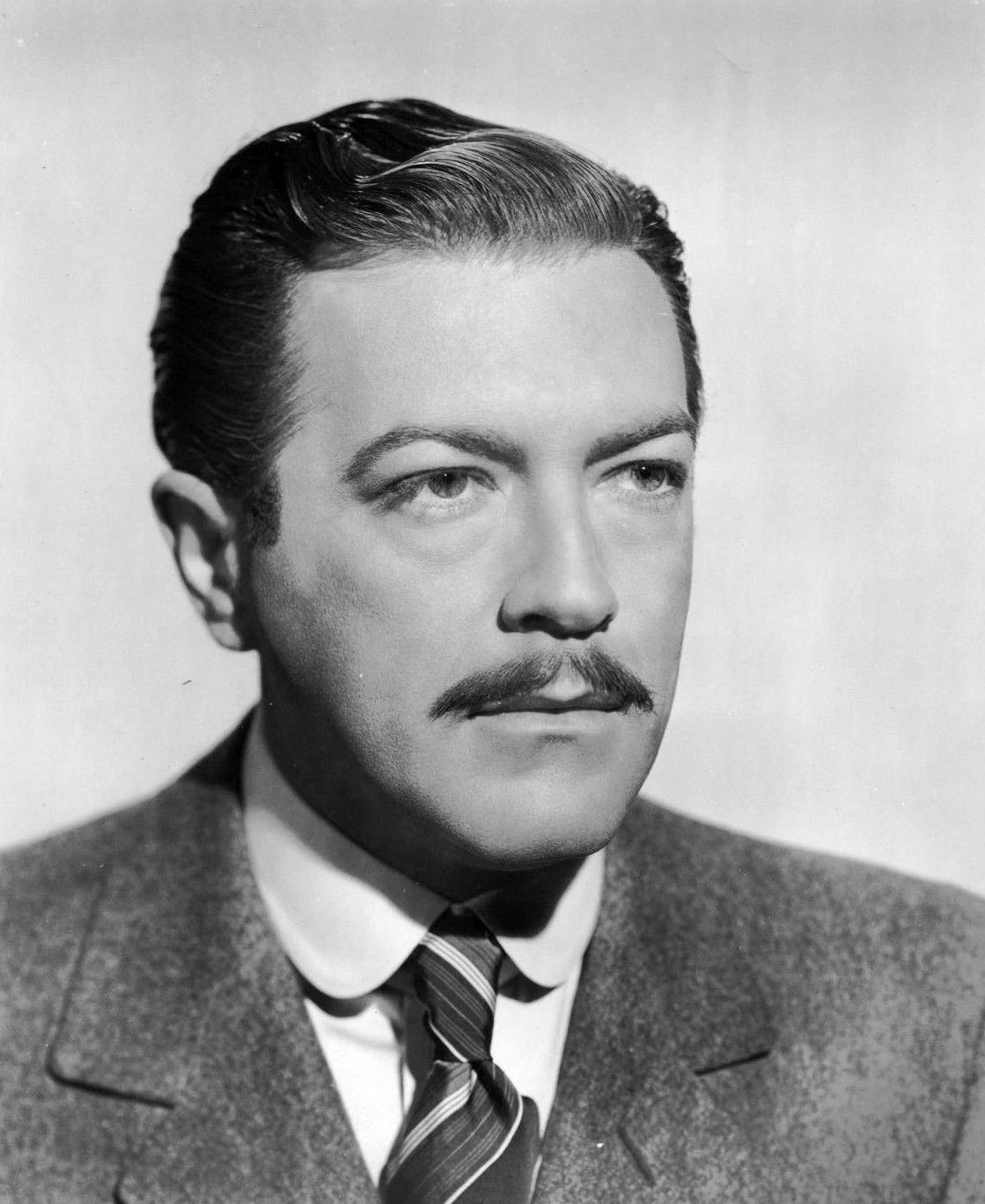Happy Birthday, Edgar Barrier!
Posted by Ivan G. Shreve, Jr. on Mar 4th 2019
Life in motion pictures was never easy for actor Edgar Barrier. It wasn’t that the work was difficult—it’s that whenever Edgar appeared in a movie, it was even money that he wouldn’t make it to the closing credits. “He has experienced horrible deaths by suicide, stabbing, fire, gunshot wounds,” noted Radio Life in 1945. Radio was a little kinder to the man born in New York City on this date in 1907. Sure, Barrier still practiced his trademark villainy, but he also received an opportunity to play the hero now and then (as witnessed in his brief stint as Simon Templar on The Adventures of the Saint).
Edgar Barrier developed his love of acting in childhood. When he enrolled at Columbia University after high school graduation, he purposely arranged his class schedule to ensure little conflict with matinees. Barrier worked with many stage legends—Alfred Lunt and Lynn Fontanne, Maude Adams, Helen Hayes, etc.—but when he was spotted in a production of Love from a Stranger by a brash youngster named Orson Welles, his future success in radio was assured. Welles signed him for his stock company, and Edgar soon began broadcasting each week on CBS’ The Mercury Theatre on the Air. Barrier remained with the program when it secured a sponsor and became Campbell Playhouse — and when Orson revived the series in 1946 as The Mercury Summer Theatre, Barrier was still with the organization. Welles would also cast Edgar in films, including Journey Into Fear (1943) and Macbeth (1948 – as Banquo). The actor also appeared in Welles’ Too Much Johnson (1938), the director’s first cinematic effort (which was considered lost for many years until it was rediscovered in 2013).
His participation in Johnson persuaded Edgar Barrier to remain in Hollywood, where he soon found work in additional motion pictures. His dark complexion and proficiency in languages made him the ideal candidate for parts that required mysterious and sinister backgrounds. Barrier played such roles in movies like Arabian Nights (1942) and Cobra Woman (1943). Edgar’s a good guy in the 1943 version of The Phantom of the Opera (as a policeman), but one of his best-known silver screen turns was as the villainous Erich Kreiger in Game of Death (1945)—a remake of the 1932 version of The Most Dangerous Game. Barrier is only a voice in Sherlock Holmes and the Voice of Terror (1942), but he also graced the casts of the 1943 serial The Adventures of Smilin’ Jack and features like Tarzan and the Leopard Woman (1946), To the Ends of the Earth (1948), The Secret of St. Ives (1949), Last of the Buccaneers (1950), and Cyrano de Bergerac (1950).

Edgar Barrier’s 13-week gig—from January 4 to March 29, 1945—as “the Robin Hood of modern crime” on The Adventures of the Saint for Bromo Seltzer over NBC was one of his few leading roles in the aural medium. Suffice it to say, Barrier was a busy actor; working for leading radio lights such as Norman Corwin and Arch Oboler, and appearing on familiar dramatic anthologies like The Bakers’ Theatre of Stars, Family Theatre, Frontier Theatre, The General Electric Theatre, The Hallmark Hal of Fame, Hallmark Playhouse, The Lady Esther Screen Guild Theatre, The Lux Radio Theatre, The Molle Mystery Theatre, and On Stage. In addition, Edgar made the rounds on The Adventures of Philip Marlowe, Broadway’s My Beat, The CBS Radio Workshop, Chandu the Magician, Crime Classics, Escape, Fort Laramie, The Green Lama, Gunsmoke, Have Gun – Will Travel, Jeff Regan, Investigator, The Line-Up, The Mayor of the Town, Pursuit, Richard Diamond, Private Detective, Rogers of the Gazette, Romance, Suspense, The Whistler, and Yours Truly, Johnny Dollar.
Edgar Barrier continued to work in motion pictures throughout the 1950s. He appears uncredited (as Professor McPherson) in The War of the Worlds (1953), and added features like The Whip Hand (1951), Prince of Pirates (1953), The Stand at Apache River (1953), Count the Hours! (1953), The Giant Claw (1957), and On the Double (1961) to his resume. Barrier also garnered small screen credits, appearing in several episodes of Zorro (as Don Cornelio Esperon), and guest starring on favorites such as 77 Sunset Strip, Broken Arrow, Hawaiian Eye, The Millionaire, My Little Margie, The Rebel, and Wagon Train. Sadly, Edgar’s contributions to the entertainment world came to an abrupt end when a heart attack took his life in 1964. He was 57 years old.

From the time he made his motion picture debut as an elderly Asian in a 1930 French film, Le spectre vert, Edgar Barrier engaged in a variety of ethnic characterizations that included Frenchmen, Spaniards, Turks, and Germans—he attributed his foreign language fluency to his mother, a talented linguist. Barrier once remarked in an interview: “I speak some German, some Russian, pretty good Spanish, pretty good French. And fair English.” That last statement was Edgar engaging in a little levity, and Radio Spirits has the proof. The birthday boy is speaking spectacularly on the following collections of The Adventures of Philip Marlowe (Lonely Canyons, Night Tide, Sucker’s Road), Broadway’s My Beat (Dark Whispers, Great White Way, The Loneliest Mile), Chandu the Magician, Crime Classics (The Hyland Files), Escape (Escape Essentials, Peril), Fort Laramie, Gunsmoke (Killers & Spoilers), Lights Out (Later Than You Think, Lights Out, Everybody), The New Adventures of Sherlock Holmes (Cue for Murder), and Yours Truly, Johnny Dollar (Expense Account Submitted, Fabulous Freelance, Medium Rare Matters, Wayward Matters). Happy birthday, Mr. Barrier!

